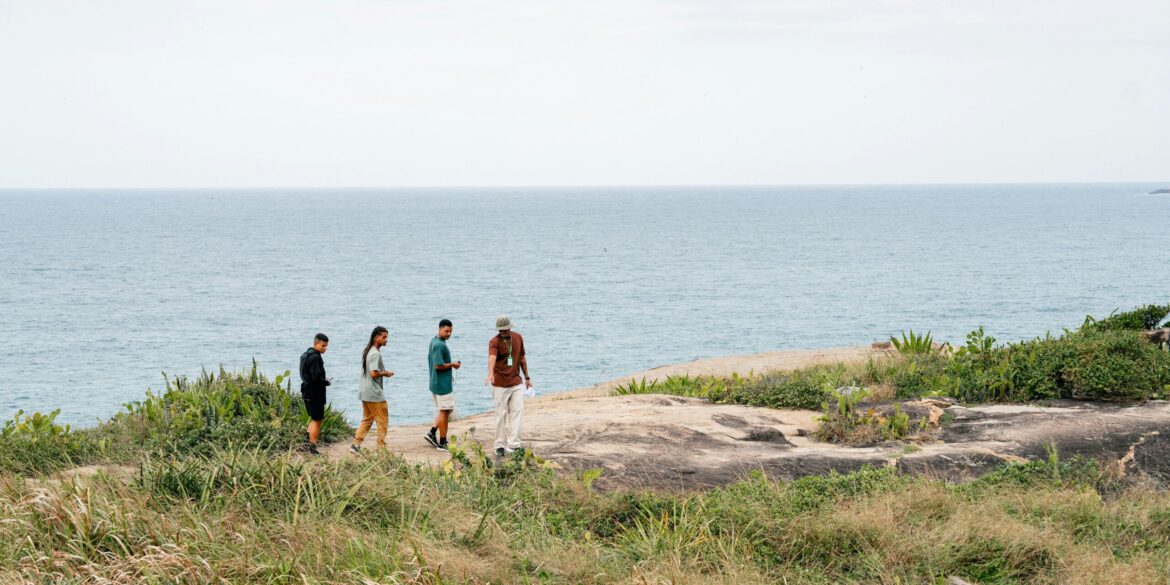Small island developing states (SIDS), led by Vanuatu, have seized a critical legal advantage in the global fight for climate justice—thanks to a landmark advisory opinion issued by the International Court of Justice (ICJ) on 23 July 2025. As of 30 July 2025, these vulnerable nations are preparing to use the ruling as a lever to demand accountability and reparations from historical high‑emitting countries.
The ICJ declared that climate change constitutes an “urgent and existential threat,” and affirmed that all states bear legally binding obligations under both treaty and customary international law to combat greenhouse gas emissions and protect the climate system. The ruling emphasized the enforceability of the Paris Agreement’s 1.5 °C target, human rights obligations related to a clean environment, and the duty to prevent transboundary harm.
Although advisory opinions are non‑binding, the ICJ’s conclusion is authoritative and carries considerable weight in international law and diplomacy. It sets a clear legal framework confirming that key climate treaties—including the UNFCCC, Paris Agreement, and Kyoto Protocol—as well as statutes like UNCLOS and biodiversity conventions, impose obligations to prevent environmental harm. The Court also recognized that broader customary international law duties—such as avoiding significant environmental harm and cooperating in climate protection—are enforceable obligations owed by all states. Violations of these duties may constitute internationally wrongful acts, with legal consequences including cessation of harm, guarantees of non‑repetition, and reparations—so long as causation is scientifically demonstrable.
The ruling reinforces that states must exercise due diligence in their climate plans and regulation of private sector emissions, pushing accountability beyond voluntary pledges.
The legal case originated in 2019 with a campaign led by student activists from the University of the South Pacific, notably from Vanuatu. These youth advocates proposed bringing the issue to the ICJ to clarify nations’ obligations under international law. Their efforts gained momentum, and in March 2023, the UN General Assembly adopted a resolution—supported by over 130 countries—formally requesting the advisory opinion. Legal experts, including Professor Jorge Viñuales of Cambridge, emphasized that the ICJ opinion marks a turning point, vindicating years of advocacy and providing a normative basis for climate accountability rooted in law.
Following the opinion’s release, Vanuatu and other small island nations, including Caribbean states such as The Bahamas and St Vincent and the Grenadines, are planning to use the ruling in international forums and legal actions. As of 30 July 2025, they are exploring ways to pursue reparations claims—financial, ecosystem restoration, or symbolic—for damages caused by climate impacts like sea-level rise and intensifying storms.
Experts view the ruling as a legal foundation for future litigation, investment treaty claims, and diplomatic pressure to enforce emissions reductions among historically high‑emitting states and corporations. While proving causation and injury remains complex, the ICJ recognized that case-by-case scientific evidence can be sufficient. The opinion also ties the right to a clean and sustainable environment to broader human rights frameworks, affirming that even submerged nations remain entitled to protection and redress under international law.
Read also: https://democratdigest.com/boston-leads-with-climate-resilience-projects-along-rising-coastline/
Legal analysts argue that this ICJ opinion marks a watershed moment by transitioning climate action from aspirational pledges into enforceable obligations. By integrating environmental protection, human rights, and international responsibility, the ruling may reshape global climate governance. As COP30 approaches in Brazil later in 2025, small island states and civil society groups plan to leverage the ICJ’s precedent to demand more ambitious mitigation commitments, loss‑and‑damage financing, and fair transitions. The ruling also supports the global trend of climate litigation—nearly 3,000 cases to date—by giving courts concrete legal backing to enforce state responsibility.
Some criticism has emerged from a few political figures in high-emitting countries. For example, the UK’s Business Secretary called the ruling “flawed” and “unreasonable,” rejecting historical liability. In the United States, proposed rollbacks of existing climate regulations stand in sharp contrast to the ICJ’s conclusions.
With the ICJ opinion now public, SIDS view it as a powerful tool for legal advocacy and diplomacy. Whether through international legal disputes, investor-state tribunal strategies, or negotiations at UN climate forums, these nations are using the ruling to strengthen their demands for accountability. They are calling not just for mitigation, but for compensation, restoration, and justice.
As strategic legal campaigns unfold in the coming months, the international community will closely watch whether this advisory opinion truly alters the landscape—and whether large polluters will be compelled to change course under legal pressure.
This moment marks more than a symbolic win—it’s the legal beginning of a new era in climate justice.

